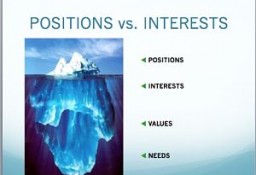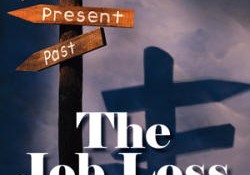In our society, it is normal to conform to the expectations of others. Most of us learn early in life to act on what others say, value and expect, especially from parents, teachers, family, experts.
In some ways it easier to do what others tell us: “In order to get ahead in life, I need good grades in school, so I will tell my teacher what s/he wants to hear, jump through the hoops, get it over and done with, so I can do the same thing in a job—and get paid for it.”
Subtle Messages
We listen to subtle messages that steer us into a particular career: “my mother said I was good with people and belong in a caring profession”; “my father always said I was no good at finishing things”; “you can’t make any money doing what I love!” So, we follow others into the family business, or the military, or a profession, or try to guess where the jobs will be in 20 years.
We get on a career track and stick with it. In other words, what our parents tell us, what society expects of us, what skills are required by the economy—is rational—and if we don’t conform to those messages, then we, as individuals, are irrational!
And, for most of us, that works for much of the time…until it doesn’t. Like train travel, a safe and efficient mode of transportation, we ride our career track until we reach a destination—the expected one of retirement of the unexpected one of a layoff.
Career goes off the rails
We usually aim at becoming something without ever taking the time to shape our own identity…then, we suddenly realize that we had no desire to get on that train at all.
It’s enough to drive any sane person a little crazy!
Internal conflicts (often represented by toxic stress or mental health issues) and external circumstances (change in life circumstances, such as job loss, illness, divorce) may require big changes in our lives…changes that can only be achieved by finding personal power and meaning in life.
Science to the Rescue
During the past 25 years, over 200 scientific studies have been published pointing to the power of narrative therapy to positively affect biological processes (including immune function) associated with health and illness. In addition, the power of expressive exercises, involving both emotional and cognitive topics, has benefited many individuals dealing with a range of physical, emotional, mental, and spiritual issues, such as cancer, heart disease, depression, cystic fibrosis, asthma, arthritis, alienation, isolation, and more.
Narrative counselling or therapy is designed:
– to help you resolve certain work/life issues;
– to give you a better understanding of your personal life story in its many dimensions and how it shapes or influences your work, career, relationships, and life;
– to repair your story;
– to create a better life.
In short, your current personal narrative is deconstructed so that a more adaptive story can be re-authored, a new or second story that gives you more power to make effective changes in your work and life, including better relationships with yourself and others.
Visit my counselling page to get more info on how narrative therapy can clear space in your life to generate a new beginning, a new work identity, a new role in society, or new opportunities.










